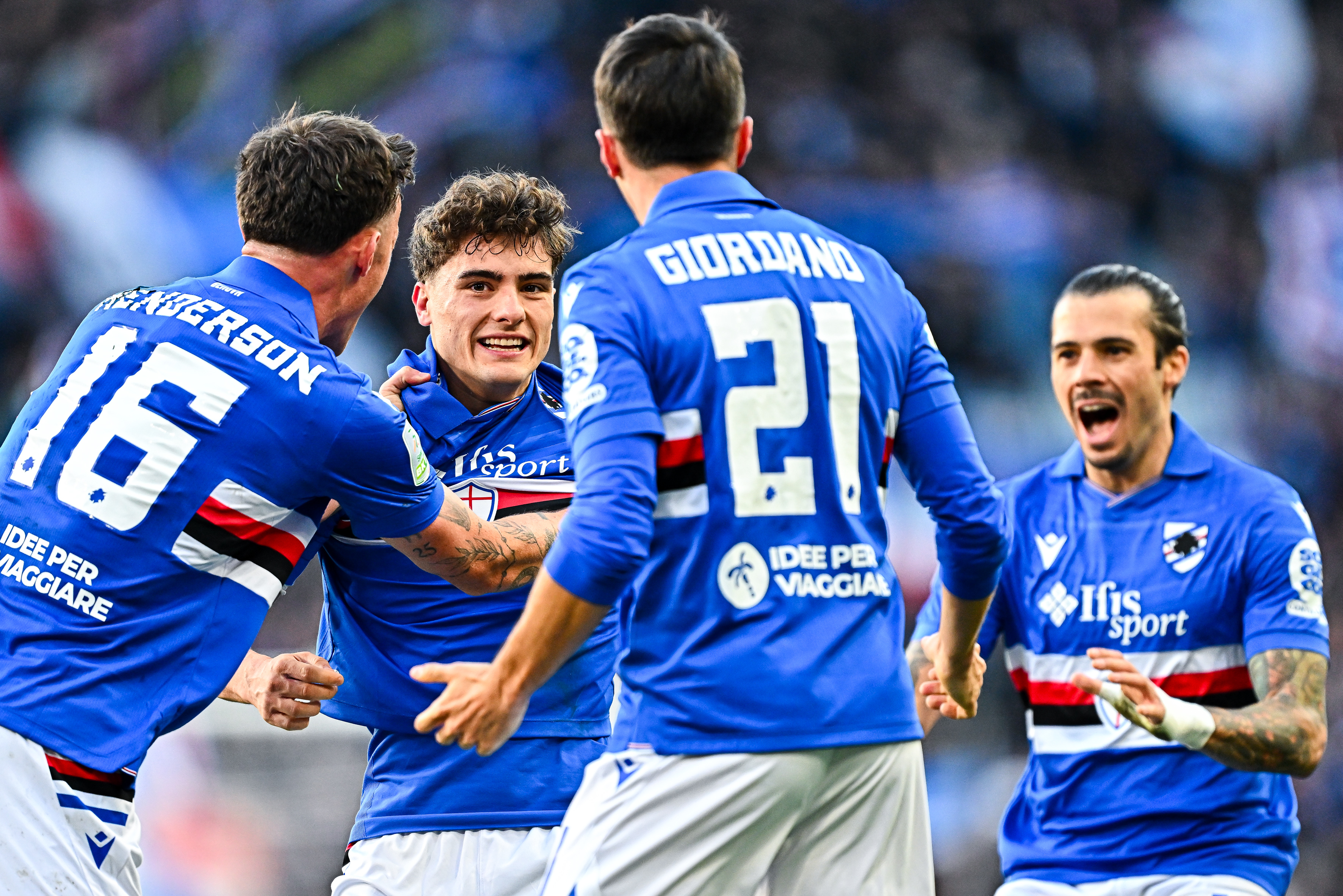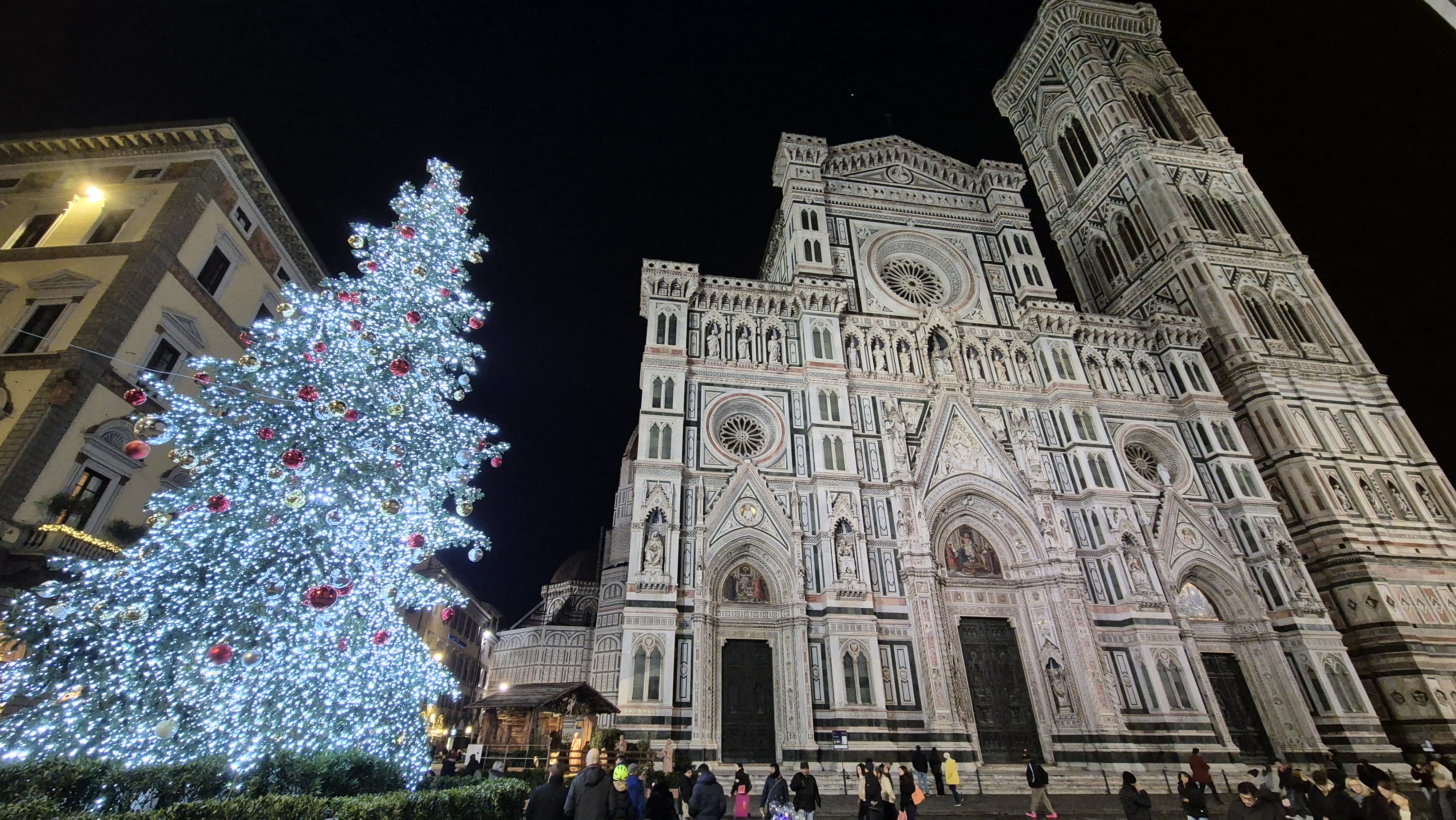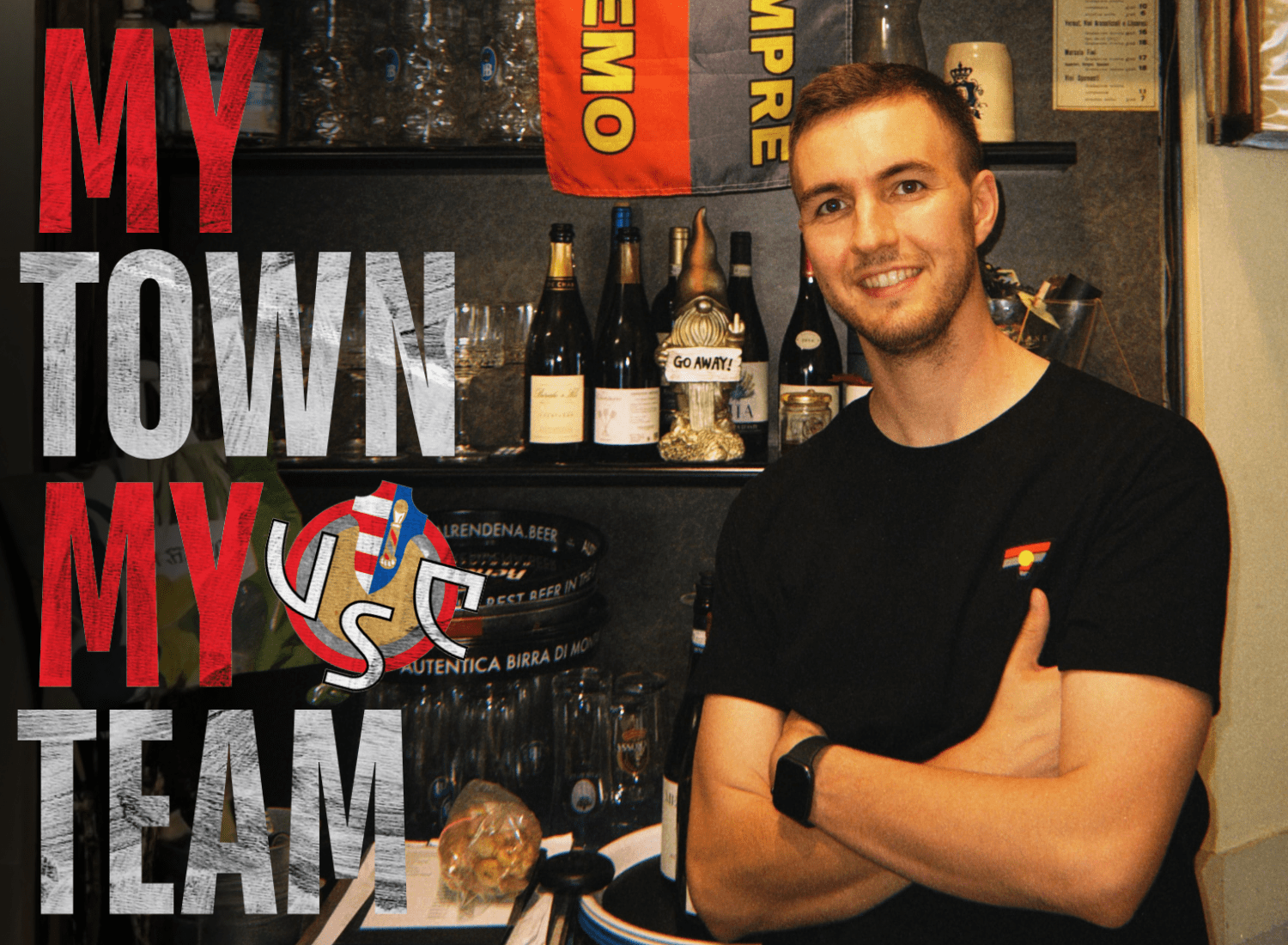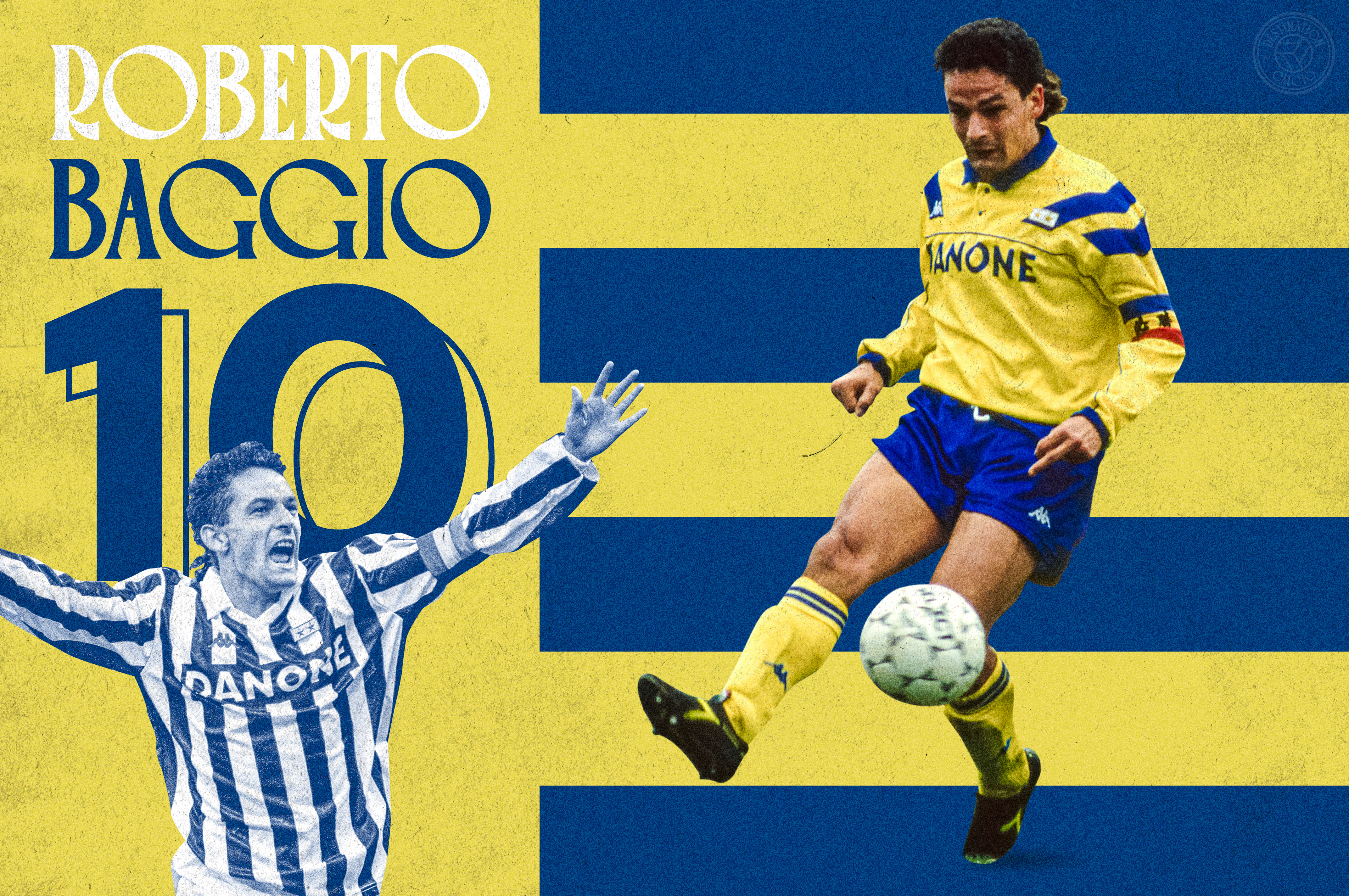
Golazzo: Roberto Baggio, Udinese vs. Juventus, 1994
By Emmet Gates
“Begin as you mean to go on, and go on as you began, and let the Lord be all in all to you,” remarked Baptist preacher Charles Spurgeon in the late 1880s, a statement that has inspired many in the decades since.
In a calcio context, this is Roberto Baggio’s story. This Azzurri hero began the ’90s with the intention of becoming the world’s best, to subsequently become the very best, maintaining an elite standard until the end of his career.
At 26 years of age, Baggio had just been crowned as the world’s best player in the days after Christmas, winning the Ballon d’Or by a landslide victory ahead of Dennis Bergkamp and Eric Cantona.
Indeed, 1993 belonged to Baggio. He guided Juventus to the UEFA Cup, demolishing Borussia Dortmund 6-1 on aggregate in the final across two legs.
Six goals in nine European games, including two spectacular goals against Paris Saint-Germain in the semi-final — one a free-kick and the other a volley from the edge of the box — played a huge part in his ultimate triumph.
Despite Juve once again failing to compete in Serie A with an ever-rampant AC Milan, which won the title for a second consecutive season, Baggio scored 21 goals. It was his most productive season to that point, as the Bianconeri finished a disappointing fourth.
Il Divin Codino scored 30 goals in all competitions in 1992-93, and in the post-Marco Van Basten landscape, Baggio was emerging as the world’s most prominent footballer.
With USA ’94 looming on the horizon, it was paramount that Baggio kept his momentum going into the new season. Trying to compete with Milan was difficult in those days, but Giovanni Trapattoni was handed one last season to topple the Rossoneri behemoth.
The Old Lady signed a precocious young talent named Alessandro Del Piero (what happened to him?), Angelo Di Livio, Sergio Porrini and Andrea Fortunato that summer. Meanwhile, Milan signed Marcel Desailly from Marseille. But both teams were operating on different levels.
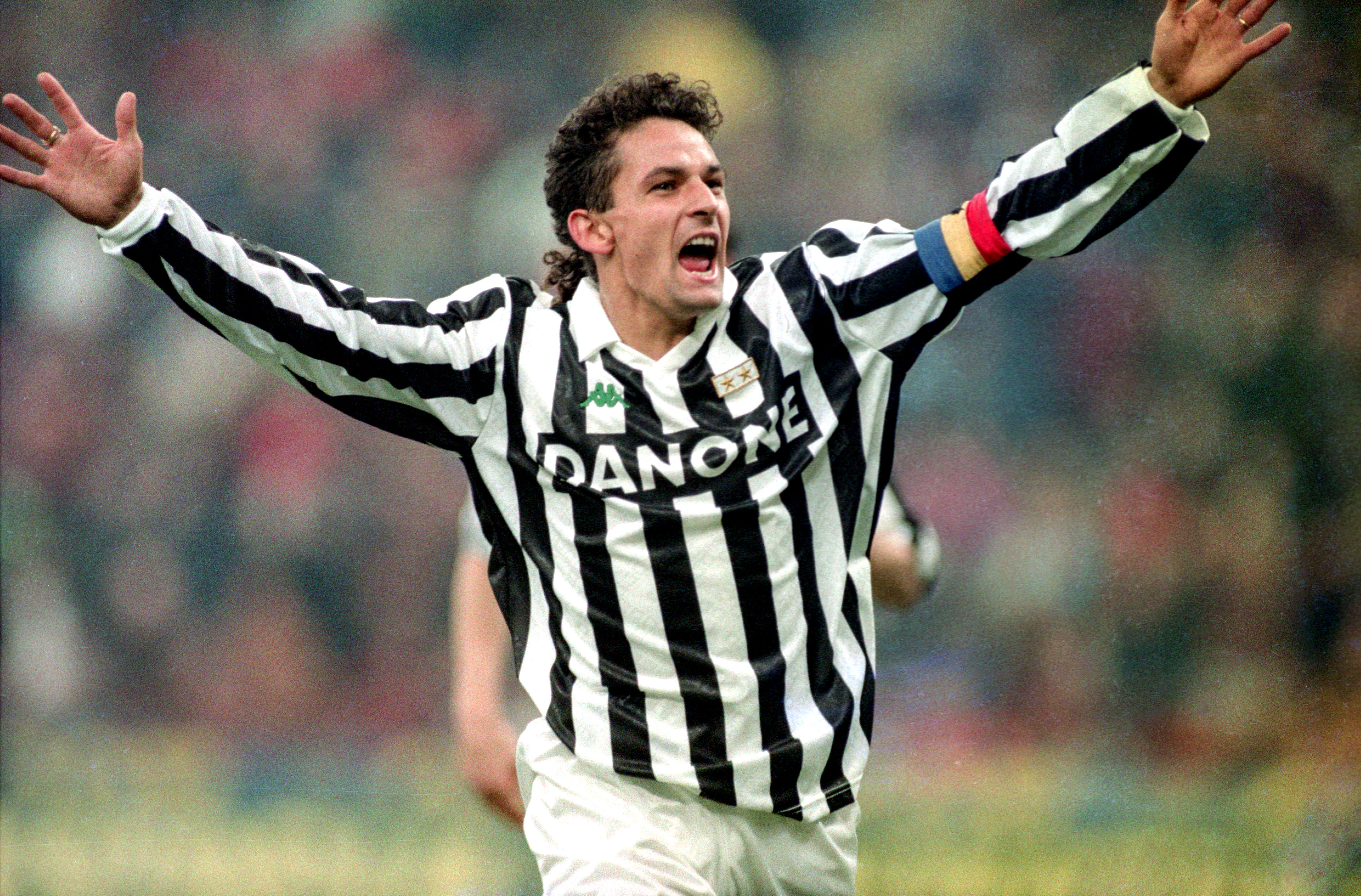
In truth, Baggio’s start to the season had been slow. By the time he won the Ballon d’Or and the FIFA World Player of the Year awards at year’s end, he’d notched up just nine league goals, with five coming from the penalty spot. However, he’d played a massive role in securing Italy’s passage to America, scoring five goals in qualifying.
After Serie A’s traditional Christmas break finished, Juve travelled to Udine to face a struggling Udinese side who’d just about survived relegation the season prior. The Zebrette finished level on points with Brescia and Fiorentina at the end of 1992-93 and had to face the Rondinelle in a relegation face-off in Bologna.
Goals from Abel Balbo, Alessandro Orlando and Francesco Dell’Anno secured the victory and Udinese’s survival for another season. Former Italy coach Azeglio Vicini took control ahead of the new season but lasted just six games before being replaced by Adriano Fedele.
Come the meeting of these two sides on January 2, Udinese had won a mere two games and were once more fighting for safety.
Baggio was determined to start 1994 as he finished 1993, and there was little Udinese could do about it.
Paired with Fabrizio Ravanelli in Trapattoni’s 4-4-2, Baggio orchestrated things from the first minute. On a truly horrible Stadio Friuli turf, Baggio was already producing magic.
Juve’s early pressure paid off. Giancarlo Marocchi (who would later play with Baggio at Bologna) took control of the ball in the centre of the field and moved towards goal. Marocchi passed the ball to Baggio but kept on running. Baggio produced the deftest of flicks around the corner for the onrushing midfielder, who charged into the box and did well to hold off the challenges of several Udinese players before sliding the ball past goalkeeper Graziano Battistini. 1-0.
Baggio was toying with Udinese in the first half and, in one move, controlled the ball on the touchline, waited for the rampaging Antonio Conte down the right-hand side and fed the future Juve captain by scooping the ball between two Udinese players with the front of his foot. Conte’s cross found Ravanelli, but his diving header could only hit the post.
The second half was much of the same. Baggio produced a clever backheel from a Di Livio cross to double Juve’s lead, only for Udinese defender Stefano Pellegrini to touch the ball en route to the net. Serie A rules were incredibly stringent in the 1990s regarding own goals; even the slightest touch from a defender could render a striker’s goal an own goal, and this was the case here. Baggio had his goal chalked down as a Pellegrini own goal, even if his backheel was goal-bound. In fairness, Pellegrini’s touch was heavy, but it wouldn’t have stopped the outcome regardless: Juve were 2-0 up and cruising.
Yet if there were doubts about that Baggio goal, there was little about his second and Juve’s third.
In the 62nd minute, Juve defender Moreno Torricelli took a goal kick and punted it upfield. The ball was about to drop just inside the centre circle in Udinese’s half when Ravanelli, who noticed Baggio running diagonally in behind him, leapt high and headed the ball into the space ahead of Baggio.
Baggio was now in a foot race with Stefano Rossini and managed to get to the loose ball first, hitting it high over Rossini’s head and into the channel. Now, in a massive space down the left-hand side, Baggio ran after the ball and was being chased by Pellegrini.
As he was approaching the ball, Baggio, in a flash, shifted his body weight from left to right and, with a single touch, sent the beleaguered Pellegrini to the proverbial shops, with the defender’s sliding tackle missing the mark so much that he nearly slid out of frame.
Running into the box from an angle, Baggio strode past Francesco Statuto like he wasn’t there and was now one-on-one with Battistini but on his left side.
The Udinese goalkeeper thought the near post was covered as Baggio narrowed in. It wasn’t.
Baggio slipped the ball in the gap left open by Battistini to put the exclamation point in one of his greatest masterpieces. It was a Ballon d’Or-worthy goal from a player at the absolute top of his game.
The home support, amazed at what they just witnessed, stood up to applaud.
“If I could try to do the magical thing, I would.” Baggio told The Independent when asked about his absurd catalogue of wonder goals.“But always in an effective way. If there’s something beautiful about it, it’s better. I would do what I felt like doing, what came naturally to me.”
Juventus would win the game 3-0 but would go on to draw their next three and lose any steam towards a sustained title push. The campaign ended disappointingly, with a surprise UEFA Cup quarter-final exit to Cagliari, meaning Baggio and his pals would end the season without silverware.
The Scudetto was once again Milan’s, as Juve finished second. It would take another year before Baggio and Juve would break the red-and-black stranglehold of the Italian game. Yet, a year later, Baggio’s career would look very different.
Of course, we all know what was in store for Baggio in America that summer, yet there was little doubt that this was the greatest version of Baggio.
“If I had to say one time, it would be the 1993-94 period. I had just come off winning the Ballon d’Or, the best player in the world, onto the World Cup. Yes, the final went as it went, but I probably would have won the Ballon d’Or again had it gone another way,” he reminisced about that era. “Those are probably the two years I enjoyed most.”
The injuries that were to slow him down in late 1994 and early 1995 hadn’t arrived yet, and here he was still the complete player, a child-like dribbler who could devastate even the best defences and turn the world’s hardest league in his own plaything, just because he could.
“The angels sing in his legs,” mused former Fiorentina manager Aldo Agroppi about Baggio. They were singing loudest on a chilly Sunday afternoon in Udine.
Related Articles
Related Articles
The Serie B season reaches halfway when the action returns after the winter break, with more live matches to look forward to on DCTV.
Florence is a dream destination year-round, but visiting during the winter months offers a completely different and magical experience.
We get a local take on what's hot in Cremona - where to eat and drink, sights to see and handy hints that might not be in the tourist guides.


